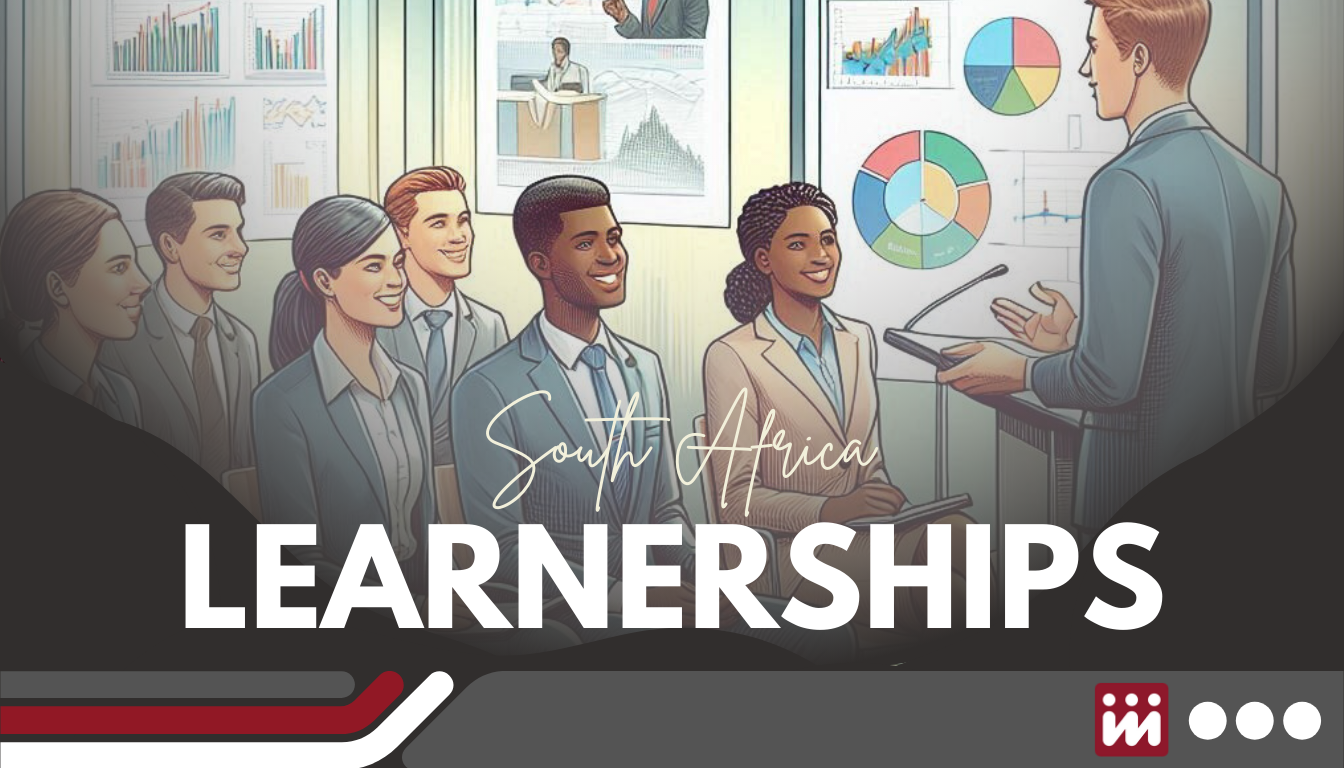Learnerships are powerful tools for boosting the skills and confidence of South Africa’s workforce. South Africa faces serious challenges—high unemployment, skills shortages, and economic inequality. With learnerships, individuals have the chance to gain practical job skills while earning qualifications, helping to bridge these gaps and opening doors to opportunity. In this post, we’ll explore how learnerships are creating paths to growth, success, and empowerment for people across South Africa. Additionally, the rise of digital platforms has transformed the landscape of job searching, with social media recruitment in South Africa becoming a critical avenue for connecting employers and potential candidates. By leveraging these platforms, learnership programs can reach a broader audience, ensuring that more individuals can discover and apply for opportunities that will enhance their employability. This modern approach not only helps in filling skill gaps but also fosters a culture of connectivity and community support in the job market. One of the key advantages of learnerships is their strong link to industry needs, which helps ensure that participants acquire relevant skills that employers are actively seeking. By working with recruitment agencies, learnership programs can effectively match individuals with suitable job opportunities, further enhancing their chances of success. This collaboration not only benefits the participants but also assists businesses in finding well-trained candidates who can contribute to their growth. Through structured programs, participants not only enhance their employability but also contribute to local economies by filling skill gaps in various industries. Additionally, organizations are increasingly recognizing the value of integrating learnerships into their hiring processes, as evidenced by the mastering recruitment metrics overview that highlights the positive impact of training initiatives on employee retention and productivity. This symbiotic relationship between education and employment ultimately fosters a more robust and resilient workforce in South Africa. By participating in learnerships, individuals not only enhance their employability but also foster connections with potential employers. Organizations looking to invest in talent can benefit significantly from these programs, making it easier for them to post a job in South Africa that attracts skilled candidates ready to contribute meaningfully. Ultimately, learnerships create a win-win situation, promoting workforce development while addressing the needs of businesses in the region.
At Isilumko, we’re here to help learners find fulfilling opportunities and to guide employers in creating impactful learnership programmes. Whether you’re looking to gain new skills or build a dedicated team, we’re here to support you on your journey.
What Are Learnerships?
A learnership is a type of structured learning programme that combines theoretical education with on-the-job training. Think of it as a hands-on way to learn a skill or trade. Learnerships are learning programmes that give you both theoretical knowledge and real-life work experience, so you can step into the job market with confidence. At the end of a learnership, participants gain a nationally recognized certificate that holds real value in their chosen field.
How Learnerships Differ from Traditional Education
Unlike a traditional classroom approach, a learnership programme allows you to learn and work at the same time. Instead of just theory, it combines practical training, allowing learners to gain hands-on experience. This work-based approach makes learnerships highly relevant to today’s job market, as learners are ready for work by the time they finish.
National Qualifications Framework (NQF)
All learnerships align with the National Qualifications Framework (NQF), ensuring that the qualifications gained are credible and valuable. For example, completing a learnership in data science might earn you an NQF Level 4 certificate, recognized across the country. This alignment with the NQF gives learners a solid foundation, boosts employability, and promotes career growth.
The Key Benefits of Learnerships
Skill Development
One of the biggest benefits of a learnership is the chance to develop industry-specific skills. Whether you aim to be an accountant, motor mechanic, or technician, a learnership gives you real-life skills that are directly applicable to the job. This structured learning helps you gain valuable skills and experience that make you job-ready upon completion.
Employment Opportunities
Learnerships make participants highly competitive in the job market. Many companies, recognizing the value of these trained learners, choose to retain them. This way, a learnership can lead directly to a job, giving learners a secure start to their careers.
Financial Support
For many people, financial hurdles make it tough to pursue traditional education. Fortunately, learnerships often come with a monthly stipend or allowance to support learners through the program. This financial aid makes learnerships accessible to a diverse range of people across South Africa, helping learners from different socioeconomic backgrounds achieve their career goals.
Contributing to Economic Growth
By providing a strong foundation of skills, learnerships make the workforce more capable and adaptable. This, in turn, strengthens South Africa’s economy, as skilled workers can boost productivity and help businesses grow. Additionally, learnerships can address the skills gap within various industries, offering tailored staffing solutions in South Africa that meet the specific needs of employers. By fostering a culture of continuous learning and professional development, organizations can create a more innovative workforce that drives economic growth. Ultimately, investing in learnerships not only benefits individuals but also enhances the overall competitiveness of the nation.
Bridging Socioeconomic Gaps
Learnerships help to close socioeconomic gaps by offering opportunities to those who may not have access to traditional education. These programmes empower disadvantaged communities, promoting a more inclusive and equal workforce across South Africa.
Learnerships for Employers
Cost-Effective Workforce Development
For employers, learnerships are a smart investment. They allow companies to develop a trained, motivated, and loyal workforce while reducing recruitment costs. By investing in learnerships, companies also ensure they’re training employees who truly understand the business, resulting in long-term benefits.
B-BBEE Compliance and Tax Incentives
In South Africa, businesses that offer learnerships can benefit from Broad-Based Black Economic Empowerment (B-BBEE) compliance, along with tax incentives. These advantages encourage more companies to offer learnership opportunities, which not only supports social equality but also benefits the business’s bottom line.
Building a Skilled Workforce
Learnerships allow companies to train employees specifically in the skills they need. Whether in fields like financial services, digital marketing practices, or as a sales representative, companies can develop talent that is directly relevant to their industry. This approach creates a workforce of motivated, skilled employees who are prepared to meet the company’s goals.
How Learnerships Address South Africa’s Unique Challenges
Combating High Unemployment
With unemployment levels high in South Africa, learnerships offer an immediate solution by giving unemployed youth and adults access to meaningful training and workplace experience. These work-based learning programmes provide essential skills that help people move directly into jobs, reducing unemployment and increasing the employability of participants.
Addressing Skills Shortages in Critical Sectors
Certain industries—such as ICT, healthcare, and engineering—face a shortage of qualified workers. Learnership programmes in these fields provide much-needed skills and qualifications, ensuring that key sectors continue to grow with skilled professionals.
Promoting Inclusivity and Diversity
Learnerships are a powerful tool for promoting diversity in the workforce. They provide opportunities to groups that may have been excluded in the past, such as people with disabilities and individuals from disadvantaged backgrounds. This inclusivity helps create a workforce that better represents South Africa’s diversity.
How to Get Involved in a Learnership
For Learners
Interested in starting a learnership? First, research opportunities available through companies, recruitment agencies, and Sector Education and Training Authorities (SETAs). Check the minimum requirements (often a Grade 12 education is needed), prepare your CV, and follow the application process closely. Be ready to upload documents and submit your application for review. If shortlisted, you may be called for interviews as part of the recruitment process.
For Employers
Employers interested in offering learnerships can start by partnering with a training provider and aligning with SETAs to ensure program quality and compliance. Not only do learnerships bring tax incentives and B-BBEE benefits, but they also provide companies with an assurance of a qualified talent pool.
Popular Learnership Programs
Many successful learnerships exist in areas like finance, technology, and healthcare. Sasol, for example, offers a robust learnership program for those pursuing careers in fields like engineering and mechanics. Cloud learnerships and data science learnerships are also popular as demand in these sectors grows.
Success Stories and Real-Life Impact
Case Studies
There are countless examples of learners who have successfully completed 12-month learning programmes and found stable careers. For example, one learner from Johannesburg shared how their learnership prepared them to enter a full-time role, armed with the skills they needed to succeed.
Testimonials
Many participants express how life-changing learnerships can be. One intern shared, “My learnership gave me the chance to gain workplace experience in my chosen field, and I now feel ready to build a successful career.” These stories highlight how learnerships open doors and transform lives.
The Future of Learnerships in South Africa
Trends and Projections
Looking to 2025, the need for learnerships is expected to keep rising, especially in tech fields like digital marketing and data science. As technology reshapes the job market, learnerships will be essential in preparing a skilled, adaptable workforce ready for tomorrow’s challenges. Furthermore, as companies embrace innovative technologies, they will seek candidates who possess not only technical skills but also soft skills that foster collaboration and creativity. Understanding the recruitment trends for Gen Z will be crucial for organizations aiming to attract and retain this emerging talent pool. By aligning learnerships with these evolving expectations, businesses can ensure a future-ready workforce that thrives in a dynamic environment.
Opportunities for Expansion
Expanding learnerships nationally will help close skill gaps, support South Africa’s economic development, and reduce unemployment. With more businesses and government involvement, learnerships can continue to empower thousands of individuals, providing a pathway to stable careers and economic progress.
Government and Private Sector Collaboration
Greater collaboration between government and businesses will enhance the impact of learnerships in South Africa. Together, they can ensure that learnership programmes reach more people, helping create a skilled, inclusive workforce ready to drive the economy forward.
How Learnerships Foster Entrepreneurial Skills
Frequently Asked Questions (FAQs)
Q: What are learnerships?
A: Learnerships are structured programmes that combine theoretical and practical training, allowing South African learners to gain work experience and earn a recognized qualification.
Q: What are the requirements to apply for a learnership?
A: Most learnerships require a Grade 12 certificate, ages 18-28, and a CV. Some programmes may have additional requirements and include an application process with assessments.
Q: What are the benefits of a learnership in 2025?
A: In 2025, learners can gain practical skills, earn a monthly allowance, and work towards a qualification, improving their chances for early career opportunities. This hands-on experience will not only enhance their resumes but also provide them with valuable insights into the workplace. As industries evolve, many of these learners will find themselves well-prepared to step into jobs in demand for 2025, positioning themselves ahead of their peers. By combining education with real-world experience, they will be equipped to navigate the competitive job market successfully.
Final Thoughts
Learnerships are a powerful force for positive change in South Africa, providing individuals with skills and real-world experience while offering employers a skilled and loyal workforce. For anyone seeking to build a brighter future, learnerships represent a proven path to growth, inclusion, and economic progress. Whether you’re an individual seeking skills or a business looking to develop talent, consider the potential of learnerships to create new opportunities.
At Isilumko, we’re here to help you find the perfect learnership opportunity or guide your business in setting up effective learnership programmes. For more information, feel free to contact us here and let us support you in achieving your career or talent development goals.
Inspiring Thought
Learnerships are not just educational opportunities—they are pathways to empowerment, socioeconomic progress, and sustainable growth for South Africa. By fostering skills and bridging the gap between training and employment, learnerships provide individuals and companies with a foundation for long-term success. Embrace the potential of learnerships and join us on the journey toward building a skilled, inclusive, and prosperous future for South Africa.




